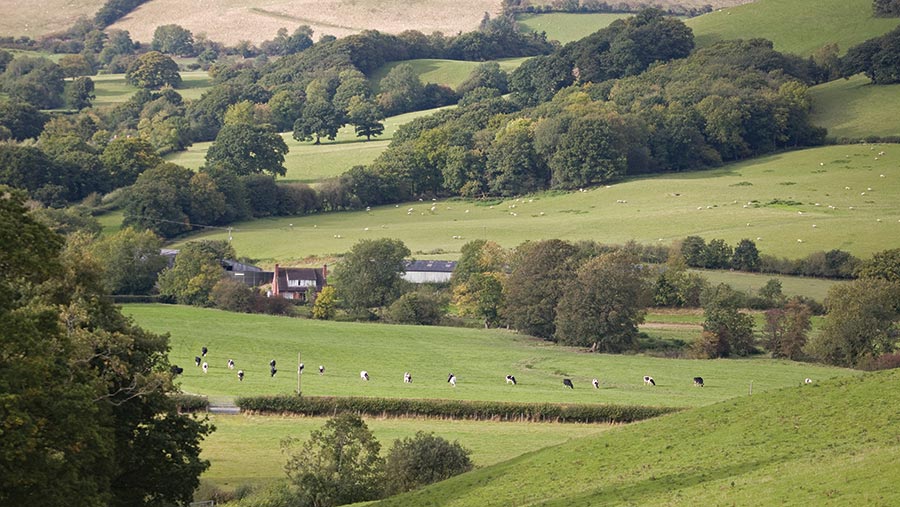FUW warns carbon offsets risk becoming ‘licence to pollute’
 © Tim Scrivener
© Tim Scrivener Welsh farm leaders have told the government that their plans to develop the UK Emissions Trading Scheme (ETS) poses both risks and rewards to farmers, with implications for land use and land ownership.
The ETS is the carbon emission trading scheme that currently applies to energy intensive industries, the power generation sector and aviation, to try and limit and reduce their environmental impact.
Businesses covered by the scheme must buy a permit or allowance for each unit of their emissions, with the theory being that this cost should incentivise them to reduce their emissions.
See also: Don’t be too hasty to sell carbon credits, farmers warned
There has been a joint UK consultation looking at expanding the use of emissions trading across the economy and other ways to develop the scheme.
This could include the use of nature-based Greenhouse Gas Removals (GGRs) as a tool for industries that need to offset any residual emissions where complete decarbonisation is problematic.
The consultation is relevant to the farming sector as it asks whether the UK ETS could become a market for carbon storage on farms and what the barriers are to farmers and growers using greenhouse gas calculators.
‘Licence to pollute’
Teleri Fielden, FUW policy officer, said members recognised that agriculture was a unique industry in its ability to sequester carbon, and that selling carbon into a regulated market such as the ETS could provide significant financial reward.
However, farmers were also strongly of the opinion that enabling GGRs to act as carbon offsets risks providing a “licence to pollute” for those sectors that can afford them.
The FUW was also worried about the implications of large-scale land use change to woodland or bioenergy crops in terms of UK and global food security.
“If carbon pricing becomes a more lucrative land use than food production, we risk displacing UK food production and offshoring our emissions to other countries by importing food with higher carbon footprints.”
Land use
The FUW has said that a market-led initiative focused entirely on carbon would fail to account for wider land use policies and priorities such as food production, rural economies and biodiversity aspirations.
Financing land-based GGRs was also likely to cause land prices to rise and increase the number of investors interested in purchasing land, which could have knock-on consequences for family farms and local communities.
Farmers were also worried about the ability of the farming sector itself to meet net zero if carbon credits generated on Welsh farmland were sold to other sectors.
Although the consultation does not propose for agriculture to be incorporated into the ETS alongside energy-intensive industries, it is anticipated farmers will need to demonstrate that their own business has or can reach net zero through other mechanisms, said Ms Fielden.
“The FUW has therefore yet again called on the UK and Welsh governments to implement a control mechanism to ensure a balance is struck between the need to decarbonise and ensuring that Wales’ rural communities, family farms, food security and our Welsh landscapes do not suffer as powerful players seek to offset their own emissions,” she added.
